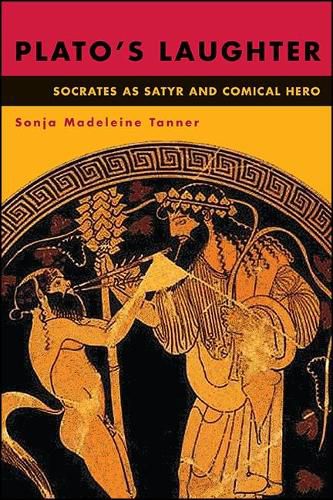Readings Newsletter
Become a Readings Member to make your shopping experience even easier.
Sign in or sign up for free!
You’re not far away from qualifying for FREE standard shipping within Australia
You’ve qualified for FREE standard shipping within Australia
The cart is loading…






Plato was described as a boor and it was said that he never laughed out loud. Yet his dialogues abound with puns, jokes, and humor. Sonja Madeleine Tanner argues that in Plato’s dialogues Socrates plays a comical hero who draws heavily from the tradition of comedy in ancient Greece, but also reforms laughter to be applicable to all persons and truly shaming to none. Socrates introduces a form of self-reflective laughter that encourages, rather than stifles, philosophical inquiry. Laughter in the dialogues-both explicit and implied-suggests a view of human nature as incongruous with ourselves, simultaneously falling short of, and superseding, our own capacities. What emerges is a picture of human nature that bears a striking resemblance to Socrates’ own, laughable depiction, one inspired by Dionysus, but one that remains ultimately intractable. The book analyzes specific instances of laughter and the comical from the Apology, Laches, Charmides, Cratylus, Euthydemus, and the Symposium to support this, and to further elucidate the philosophical consequences of recognizing Plato’s laughter.
$9.00 standard shipping within Australia
FREE standard shipping within Australia for orders over $100.00
Express & International shipping calculated at checkout
Plato was described as a boor and it was said that he never laughed out loud. Yet his dialogues abound with puns, jokes, and humor. Sonja Madeleine Tanner argues that in Plato’s dialogues Socrates plays a comical hero who draws heavily from the tradition of comedy in ancient Greece, but also reforms laughter to be applicable to all persons and truly shaming to none. Socrates introduces a form of self-reflective laughter that encourages, rather than stifles, philosophical inquiry. Laughter in the dialogues-both explicit and implied-suggests a view of human nature as incongruous with ourselves, simultaneously falling short of, and superseding, our own capacities. What emerges is a picture of human nature that bears a striking resemblance to Socrates’ own, laughable depiction, one inspired by Dionysus, but one that remains ultimately intractable. The book analyzes specific instances of laughter and the comical from the Apology, Laches, Charmides, Cratylus, Euthydemus, and the Symposium to support this, and to further elucidate the philosophical consequences of recognizing Plato’s laughter.